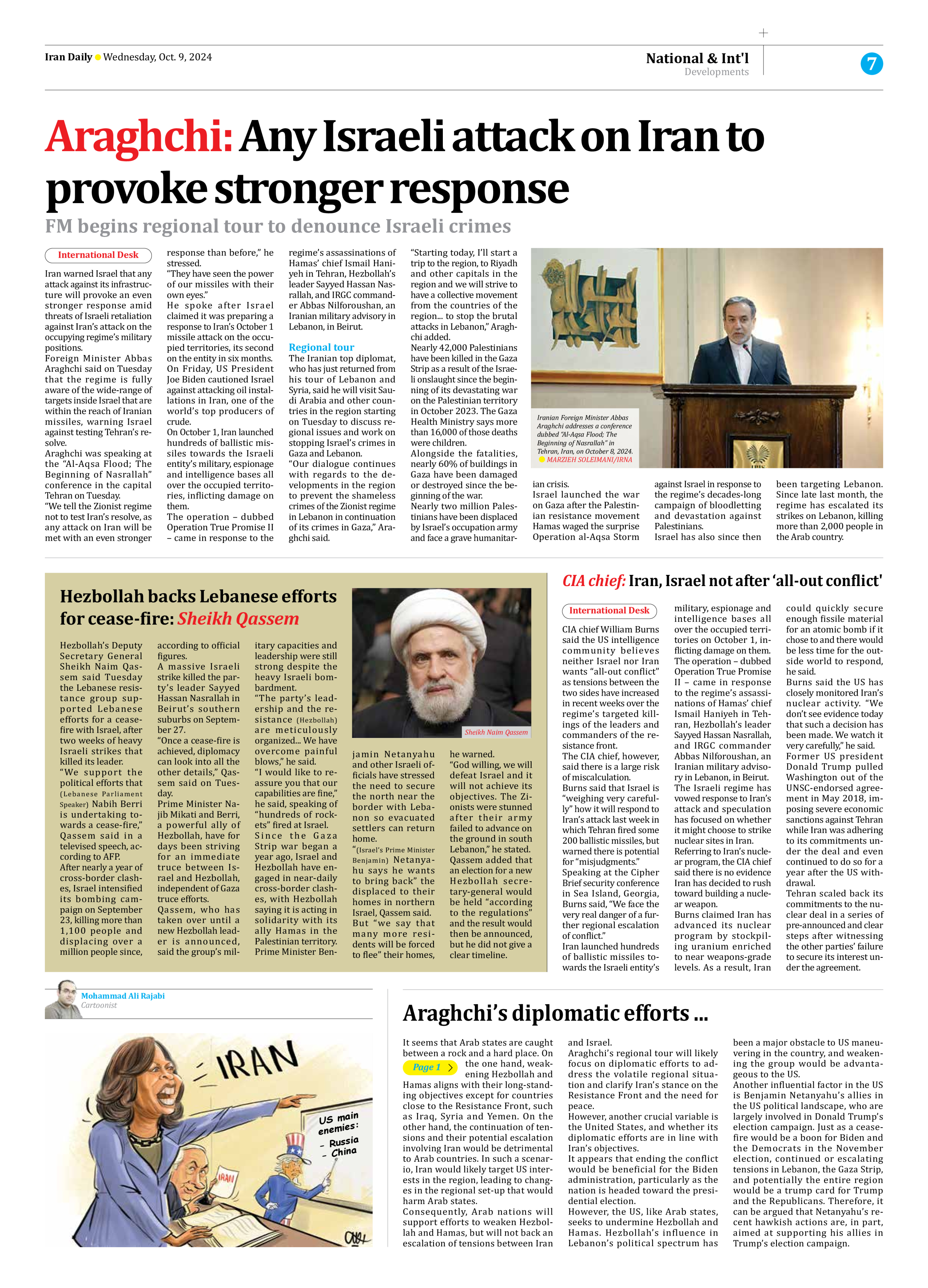
Araghchi’s diplomatic efforts ...
Page 1
It seems that Arab states are caught between a rock and a hard place. On the one hand, weakening Hezbollah and Hamas aligns with their long-standing objectives except for countries close to the Resistance Front, such as Iraq, Syria and Yemen. On the other hand, the continuation of tensions and their potential escalation involving Iran would be detrimental to Arab countries. In such a scenario, Iran would likely target US interests in the region, leading to changes in the regional set-up that would harm Arab states.
Consequently, Arab nations will support efforts to weaken Hezbollah and Hamas, but will not back an escalation of tensions between Iran and Israel.
Araghchi’s regional tour will likely focus on diplomatic efforts to address the volatile regional situation and clarify Iran’s stance on the Resistance Front and the need for peace.
However, another crucial variable is the United States, and whether its diplomatic efforts are in line with Iran’s objectives.
It appears that ending the conflict would be beneficial for the Biden administration, particularly as the nation is headed toward the presidential election.
However, the US, like Arab states, seeks to undermine Hezbollah and Hamas. Hezbollah’s influence in Lebanon’s political spectrum has been a major obstacle to US maneuvering in the country, and weakening the group would be advantageous to the US.
Another influential factor in the US is Benjamin Netanyahu’s allies in the US political landscape, who are largely involved in Donald Trump’s election campaign. Just as a cease-fire would be a boon for Biden and the Democrats in the November election, continued or escalating tensions in Lebanon, the Gaza Strip, and potentially the entire region would be a trump card for Trump and the Republicans. Therefore, it can be argued that Netanyahu’s recent hawkish actions are, in part, aimed at supporting his allies in Trump’s election campaign.







